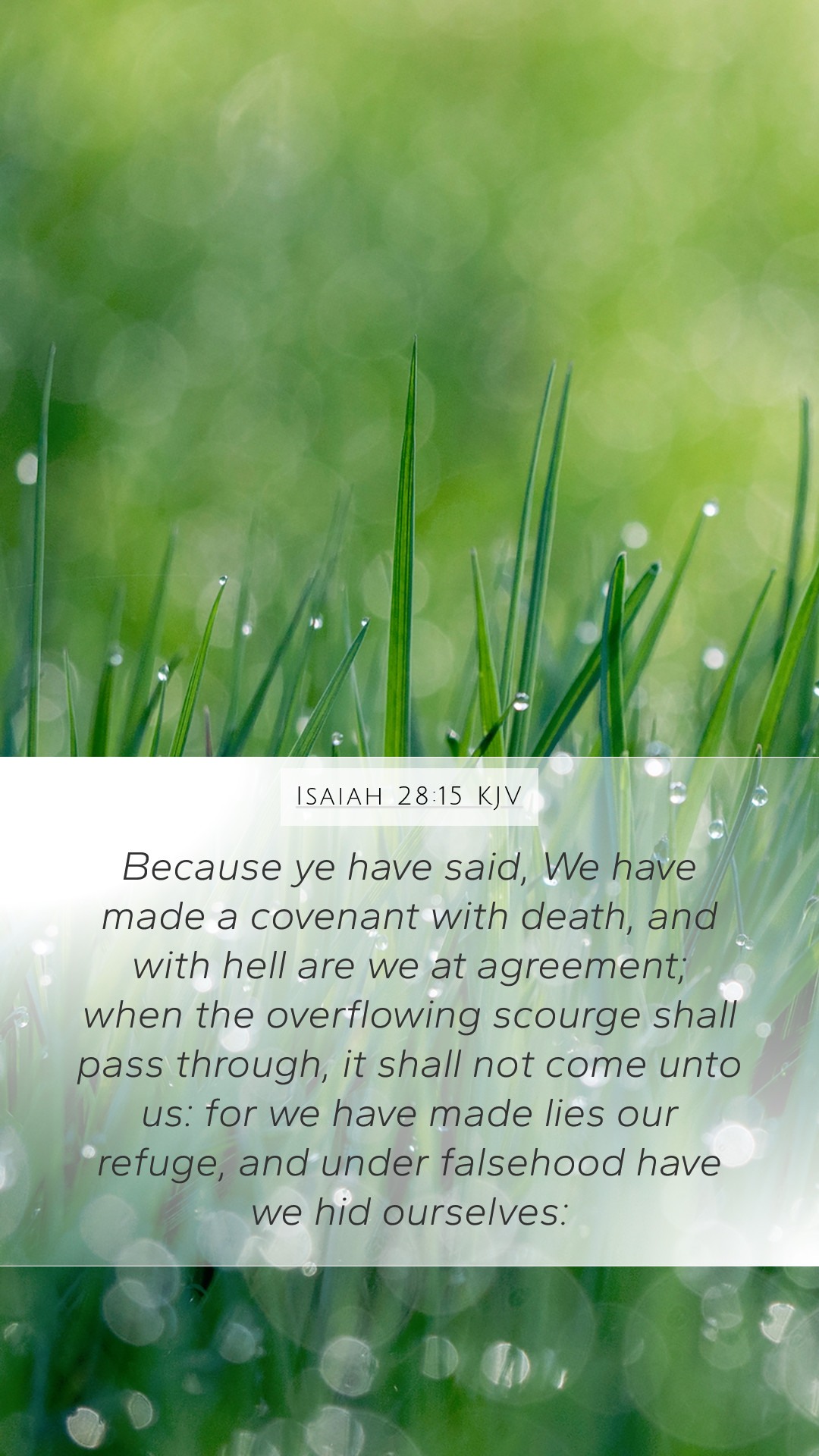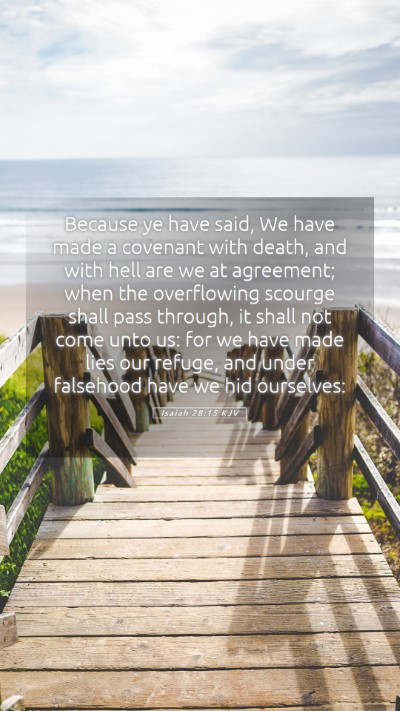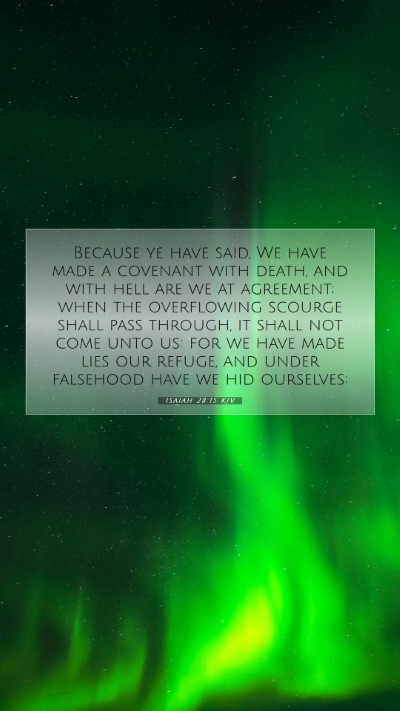Understanding Isaiah 28:15
Bible Verse: Isaiah 28:15
Verse Reference: "Because you have said, We have made a covenant with death, and with hell are we at agreement; when the overflowing scourge shall pass through, it shall not come unto us: for we have made lies our refuge, and under falsehood have we hid ourselves."
Summary of Isaiah 28:15
The verse depicts a profound statement of reliance upon false securities by the people of Israel. They believe that by making a covenant with death and hell—essentially embracing their own demise and sinfulness—they can escape the impending judgment. This illustrates their delusion and lack of faith in God’s promises. The 'overflowing scourge' symbolizes the calamity or destruction that is coming, while their false sense of safety emphasizes their spiritual blindness.
Commentary Insights
Matthew Henry Commentary
According to Matthew Henry, this verse uncovers the folly of the Israelite leaders who, in their pride and arrogance, have convinced themselves that they can shield themselves from the consequences of their actions through deceit and lies. They demonstrate a remarkable blindness to the truth, believing that their cunning arrangements can spare them from divine judgment.
Albert Barnes Commentary
Albert Barnes focuses on the implications of making a 'covenant with death.' He notes that this refers to the false hopes that men often cling to, which lead them away from genuine faith in God. This commentary emphasizes that trusting in human wisdom or deception will ultimately fall short when faced with God's judgment.
Adam Clarke Commentary
Adam Clarke provides a deeper historical context, suggesting that the covenant was an agreement likely made with foreign powers or false prophets, indicating a lack of trust in God. Clarke warns that falsehood serves as a refuge only until truth reveals itself, leading to ultimate ruin.
Thematic Analysis
Isaiah 28:15 serves to illustrate common human tendencies to embrace falsehoods rather than confront truths. The underlying themes include:
- False Security: The comfort found in deceptive beliefs.
- Judgment: The inevitable arrival of calamity in response to sin.
- Spiritual Blindness: The failure to see the truth of one’s situation.
Application in Daily Life
Understanding this verse urges believers to examine their own lives: are there areas where they seek refuge in lies rather than addressing difficult truths? This leads to questions of accountability, faith, and the reliance upon God rather than temporal "saviors."
Related Scripture References
- Jeremiah 8:11: "For they have healed the hurt of the daughter of my people slightly, saying, Peace, peace; when there is no peace."
- Luke 11:34-36: Discussing the light of the body and the importance of clear vision.
- 2 Thessalonians 2:11-12: Mention of strong delusion due to rejection of truth.
Concluding Thoughts
This exploration of Isaiah 28:15 illustrates the core teachings of faith, accountability, and the dangers of self-deception. It serves as a reminder that true safety is found only in a relationship with God and honesty in confronting sin. As we study this verse, we derive insights applicable to our lives today, urging us to seek truth and rely on God's promises rather than our own understanding.
Further Study Recommendations
- Bible Study Guides: In-depth lessons on the book of Isaiah.
- Online Bible Study: Platforms that offer study groups focused on prophecy.
- Bible Study Tools: Resources for understanding difficult passages and their applications.


